Opera Shows to see in London this Autumn/Winter 2025
 Shehrazade Zafar-Arif
13 September, 2025, 10:55
Shehrazade Zafar-Arif
13 September, 2025, 10:55
There’s something truly magical about opera - immersive storytelling, visually stunning spectacle and bombast, larger than life characters, and of course, music that is rich and vivid as it is unique from one opera to another. London is a vibrant city for opera lovers, offering everything from Baroque to Romantic, Classical to modern; from comic Opera Buffa to serious Opera Seria. This year, we’re lucky enough to see London host some of the most well-known, popular, and extraordinary opera from a dizzying array from the most prolific composers from a range of backgrounds, genres, and styles. Here are the top ten operas we’re most looking forward to this autumn and winter.
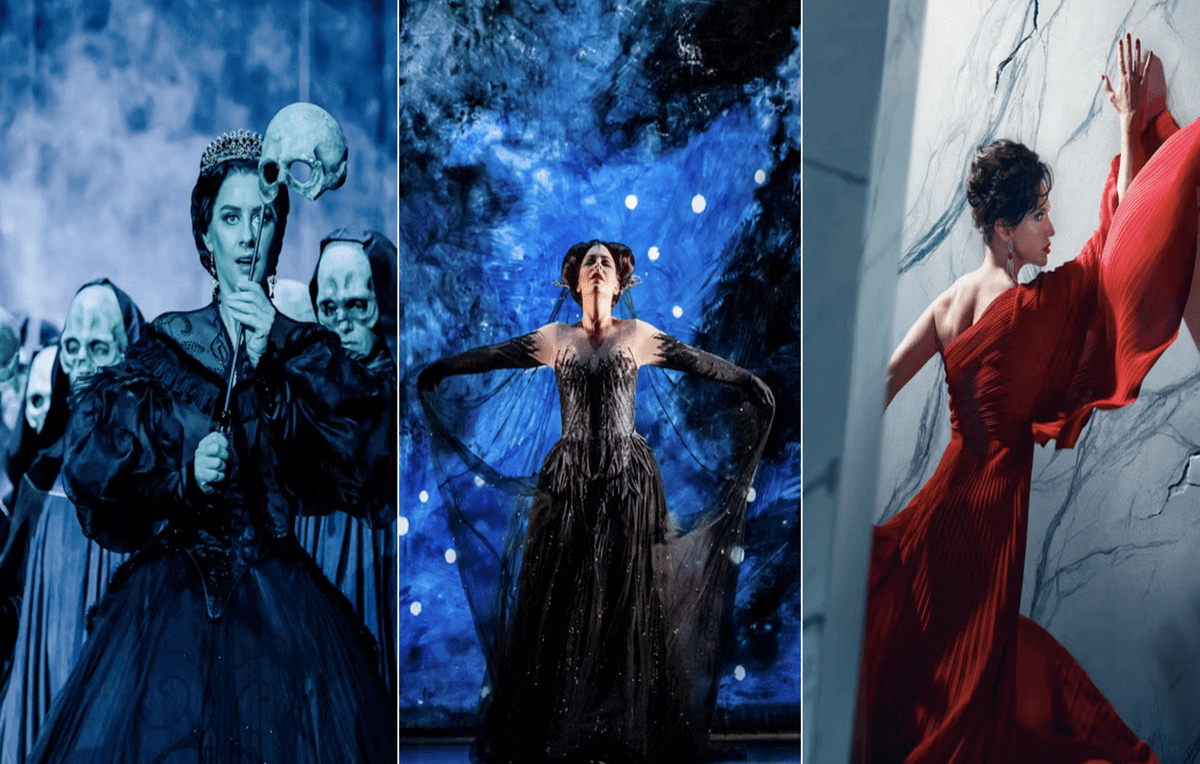
Tosca at the Royal Opera House
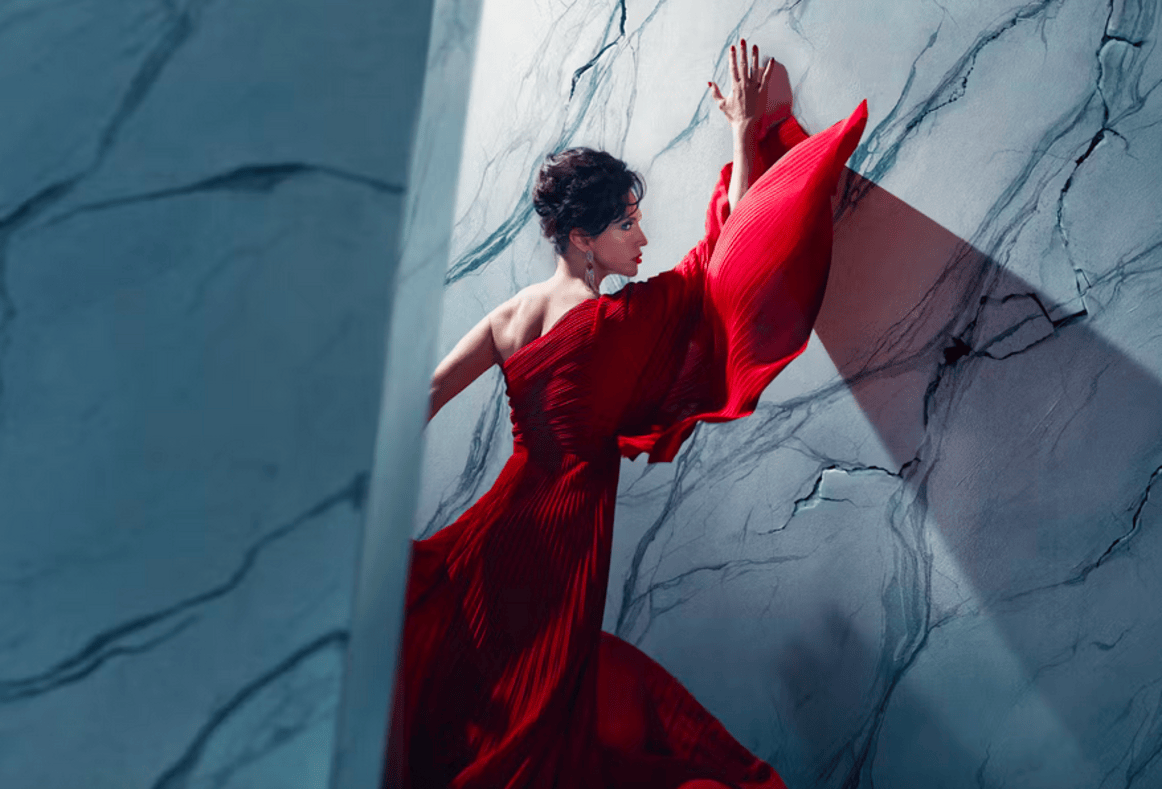 Image courtesy of the Royal Ballet & Opera
Image courtesy of the Royal Ballet & Opera
Puccini was considered one of the greatest composers of Italian opera, known for his devotion to visual spectacle and his tendency to make his characters suffer. In Tosca, fearless heroine Floria Tosca must use all her wits to save her lover Mario Cavaradossi from the queen’s sadistic chief of police, Scarpia, who demands she sleep with him in exchange for Mario’s life. Oliver Mears transports this epic story of political intrigue and tyranny to modern-day Rome. Musical highlights include ‘Vissi d'arte’, the heartbreaking soprano aria sung by Tosca as she contemplates her tragic fate, and Cavaradossi’s equally moving tenor aria, ‘E lucevan le stelle’, as he bids farewell to his lover.
The Sicilian Vespers at the Royal Opera House
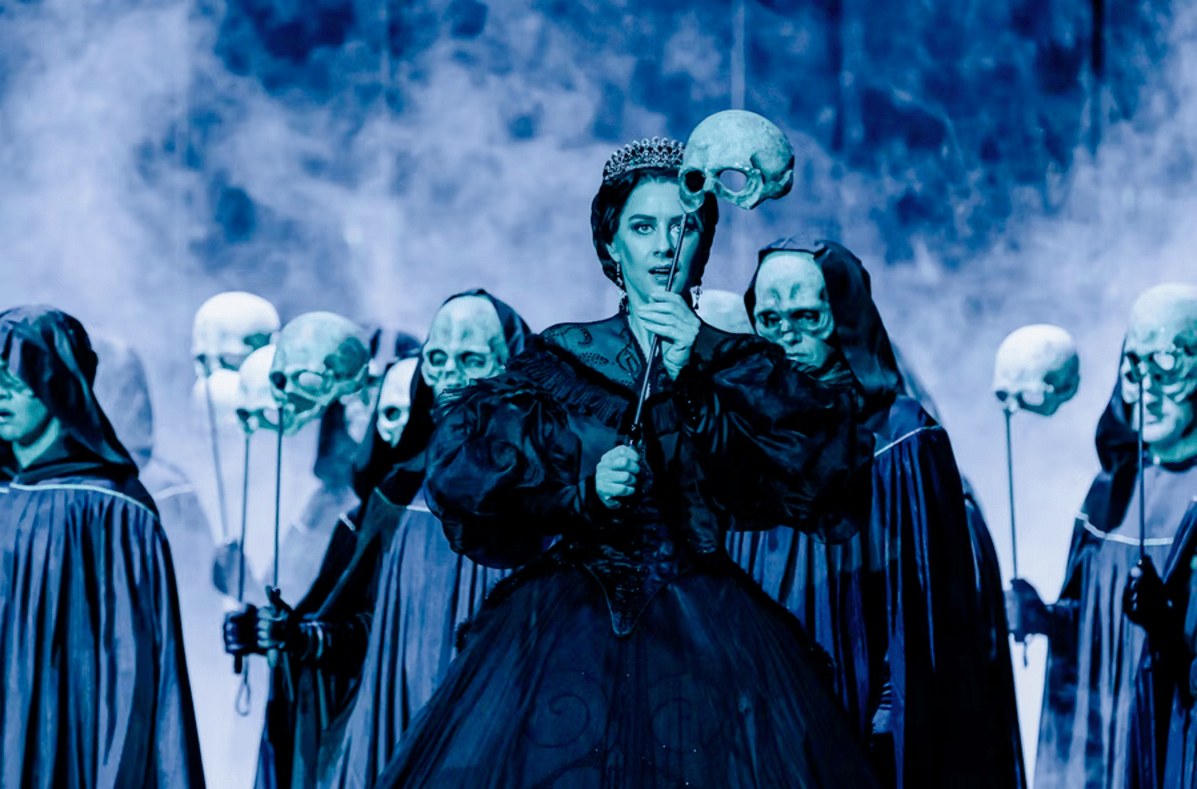 Image courtesy of the Royal Ballet & Opera
Image courtesy of the Royal Ballet & Opera
Dubbed ‘the Shakespeare of Opera’, Verdi was another of the great Italian composers, known for his lyricism and emotional intensity. In another story of tyranny and oppression that still feels hauntingly relevant today, noblewoman Helene seeks revenge for her brother’s execution in French-occupied Sicily. Meanwhile her lover Henri is torn between his loyalties to his fellow Sicilians and his father, the French governor. This culminates in a bloody, dangerous plot to overthrow the French occupiers, inspired by a real-life 13th century uprising, a story Verdi adapted with Italy’s 19th century struggle for independence in mind. Stefan Herheim’s production uses elaborate choruses and powerful ensembles to capture the duality of this opera as both a historical epic and a personal tragedy. Musical highlights include ‘Arrigo! Ah, parli a un core’, the tenor-soprano love duet between the two lovers, and ‘O tu, Palermo’, the passionate hymn to Palermo sung by rebel leader Procida.
Ariodante at the Royal Opera House
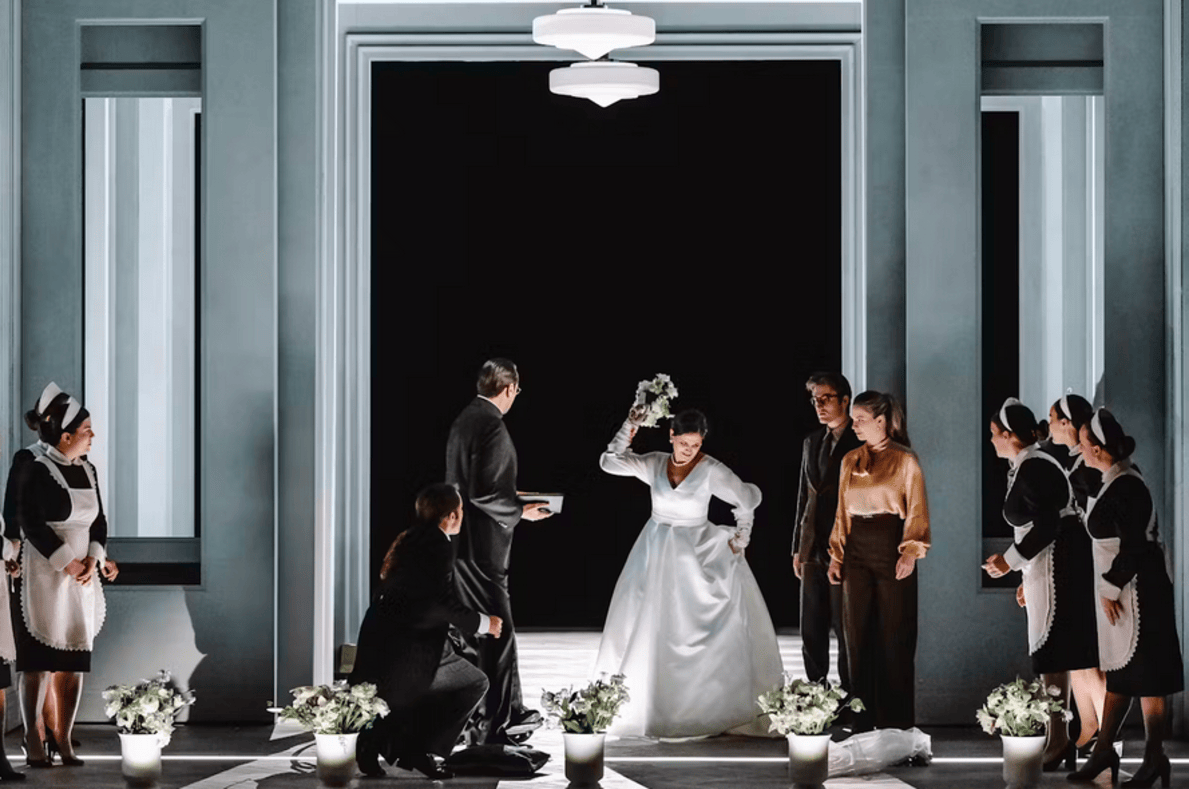 Image courtesy of the Royal Ballet & Opera
Image courtesy of the Royal Ballet & Opera
Handel was a German-British Baroque composer, best known for pioneering the English oratorio. Ariodante was his only opera set in Britain, and tells the story of young lovers Ariodante and Ginevra, whose romance is thrown into turmoil when Ginevra is accused of infidelity and forced to clear her name. In classic Handel style, this delightful opera combines chivalric romance, comedy, and mythology, and is filled with twists and turns and rich characters. Musical highlights include Ariodante’s anguished, mournful slow aria, ‘Scherza infida’, as he bemoans Ginevra’s suspected infidelity, and the triumphant, festive finale chorus number, ‘Dopo notte, atra e funesta’.
The Magic Flute at the Royal Opera House
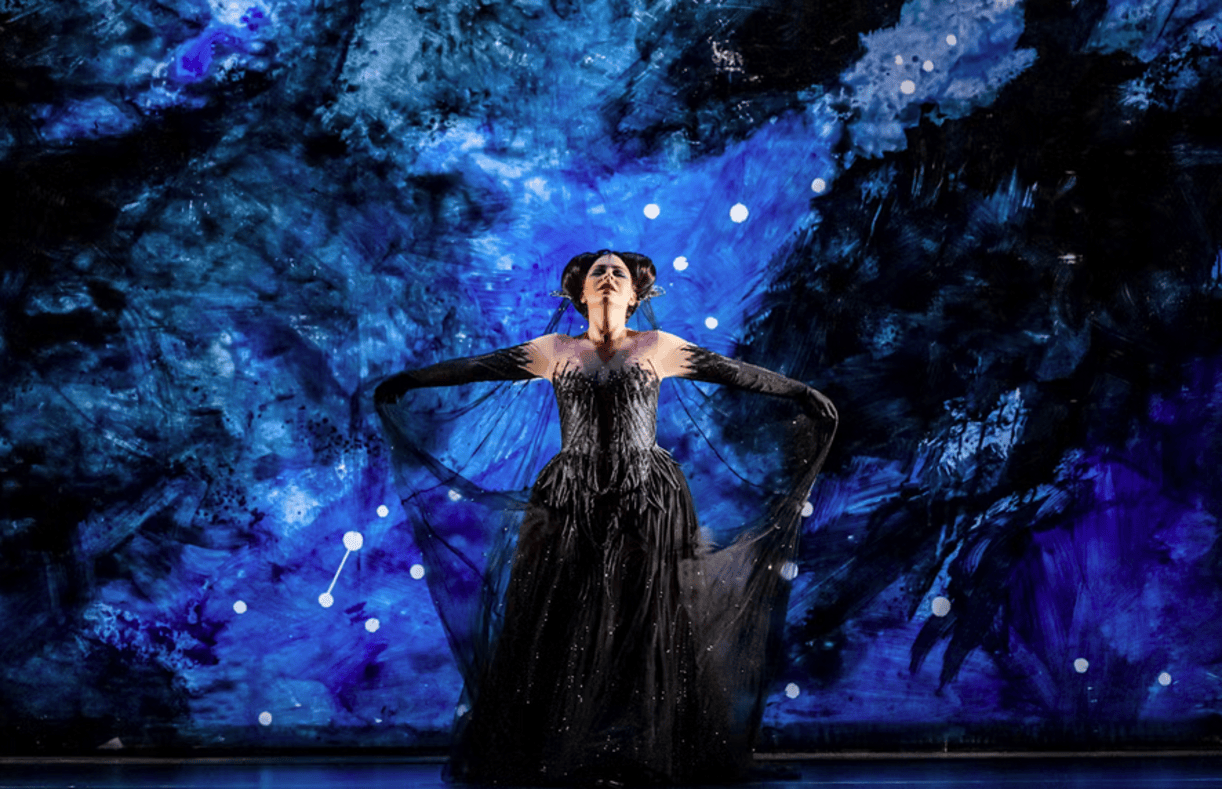 mage courtesy of the Royal Ballet & Opera
mage courtesy of the Royal Ballet & Opera
Of course, no opera season is complete without one of Mozart’s most famous operas. Mozart was the most prolific and talented composer of the Classical period, who created over 800 works representing virtually every classical genre of the time. The Magic Flute has all the ingredients of a great epic fantasy and adventure story: a princess kidnapped by an evil enchanter, a prince and his sidekick on a heroic journey to rescue her, and a land filled with monsters and illusions, where their only guide is a magic flute. This enchanting opera is full of magic and wonder, romance and adventure, allegory and philosophy - everything you could ask for in an opera, one which has inspired countless subsequent works. Musical highlights include the Queen of the Night’s famous aria, ‘Der Hölle Rache kocht in meinem Herzen’, filled with dazzling notes symbolising her rage and power, and ‘Bei Männern, welche Liebe fühlen’, Pamina and Papageno’s tender, moving love duet.
Carmen at the London Coliseum
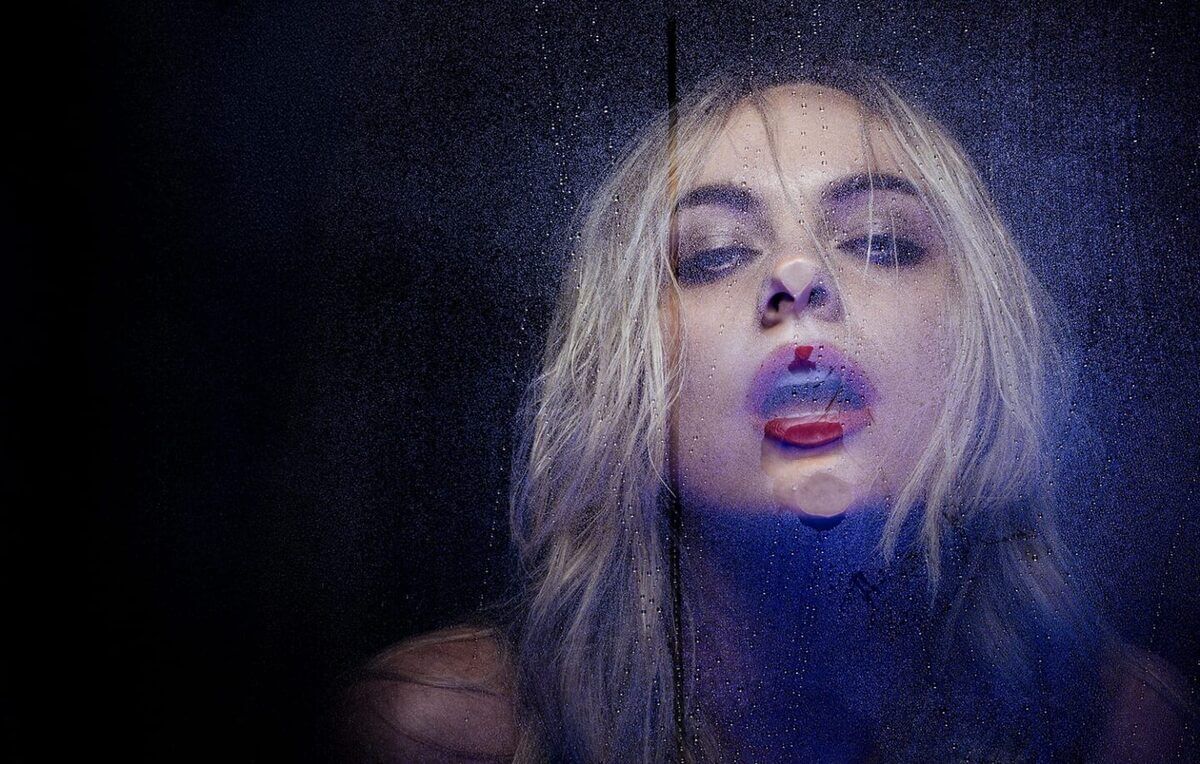 Image courtesy of English National Opera
Image courtesy of English National Opera
Bizet is a tragic figure in opera history. A French composer of the Romantic era, his career was cut short by an early death, and Carmen was his most successful as well as his final opera. Its heroine, Carmen, is one of opera’s most famous characters, a free-spirited woman driven by passion and pursued by jealous, obsessive men that lead her to her tragic end. One of these men is the naive soldier Don Jose, who abandons his responsibilities for a life of smuggling and crime to pursue the fickle Carmen. Director Jamie Manton relocates this timeless story of obsession and desire to the 1970s and the tail-end of the Franco regime. Musical highlights include the bravado-filled 'March of the Toreadors' led by the swaggering bullfighter Escamillo, and the sultry, seductive 'Habanera', where we’re introduced to Carmen’s character.
Così fan tutte at the London Coliseum
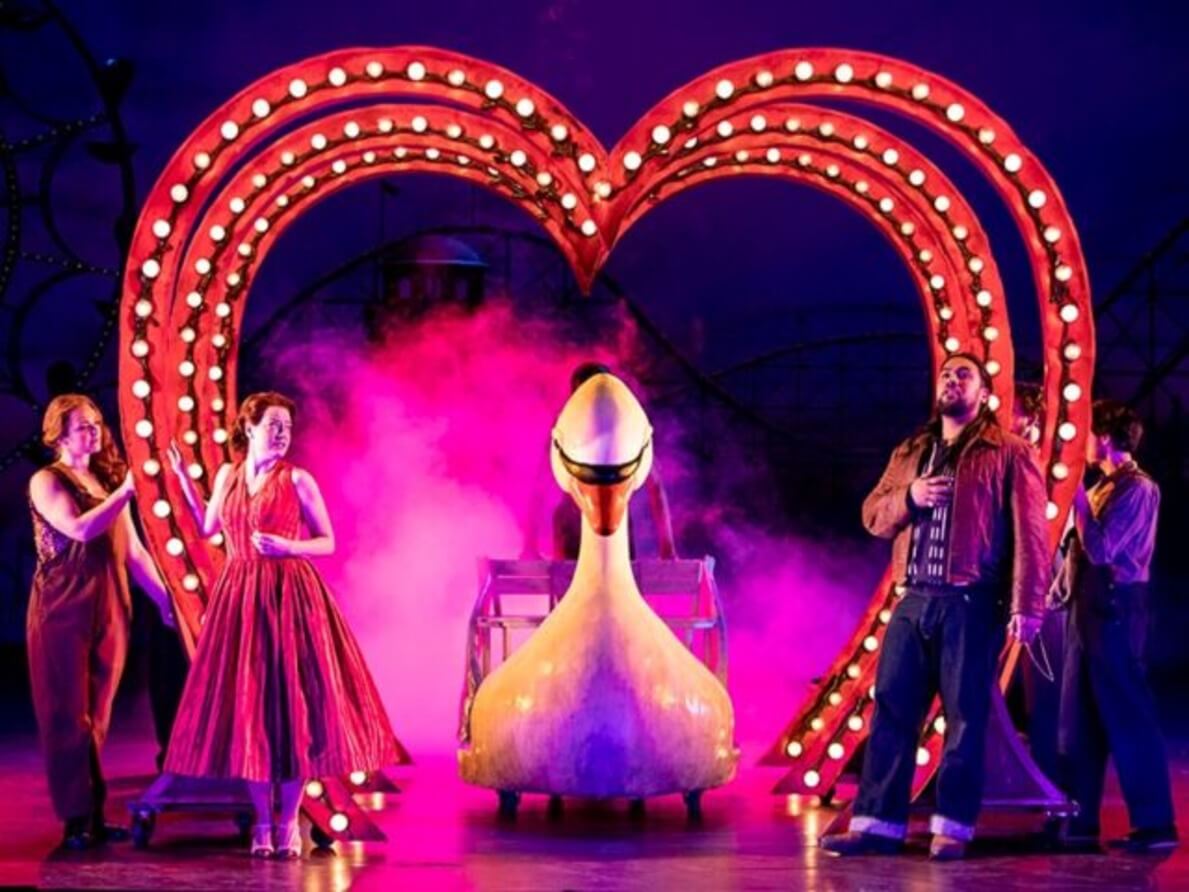 Image courtesy of the English National Opera
Image courtesy of the English National Opera
If you’re looking for something lighter in mood, try Cosi fan tutte. Mozart’s mischievous comic masterpiece has all the ingredients of a great romantic comedy: two young officers, Ferrando and Guglielmo, make a bet with the cynical Don Alfonso to test the fidelity of their fiancees, the sisters sisters Fiordiligi and Dorabella. They fake their own deaths and return in disguise to seduce each other’s brides. Mayhem ensues. Phelim McDermott updates the setting to 1950s Coney Island, filled with fairgrounds and pleasure gardens, a perfect place for this story about love, loyalty, trickery, and mistaken identities. Musical highlights include ‘Come scoglio’, Fiordilligi’s passionate bravura aria where she declares her love and fidelity, and ‘Soave sia il vento’, a melancholy ensemble between Don Alfonso and the heartbroken sisters.
The Makropulos Case at the Royal Opera House
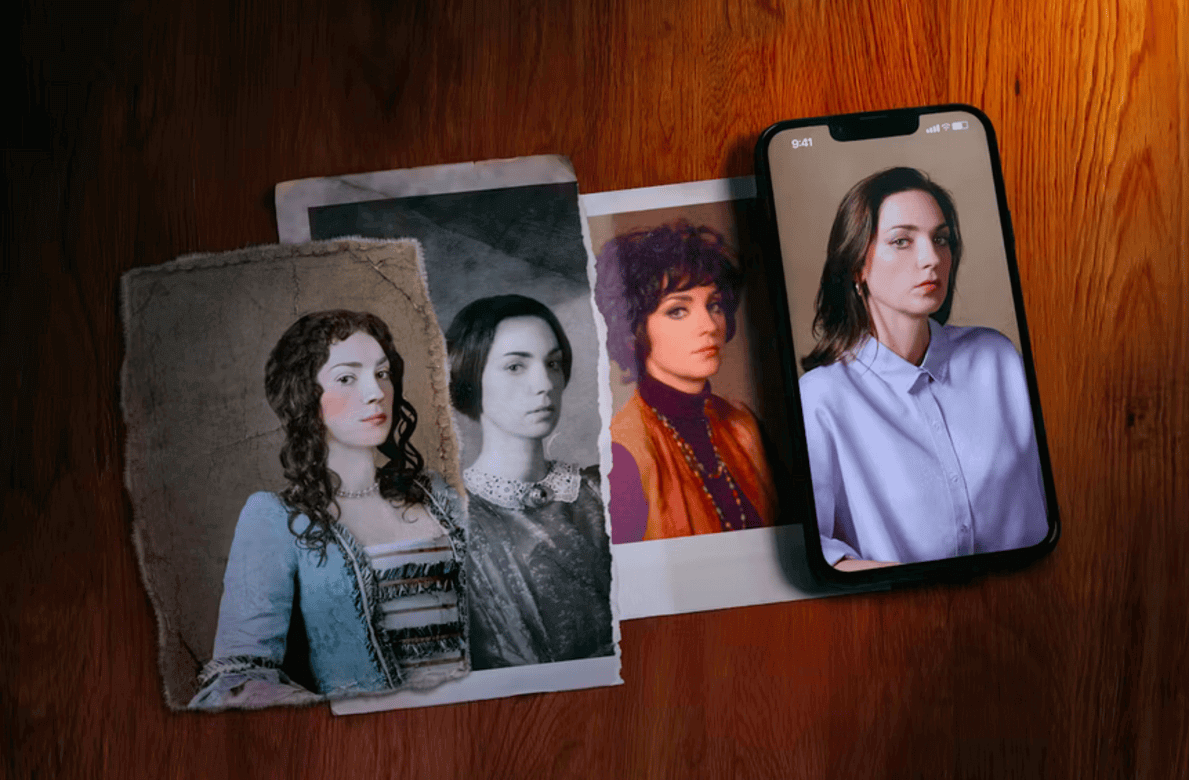 Image courtesy of the Royal Ballet & Opera
Image courtesy of the Royal Ballet & Opera
A great choice if you're looking for something a bit unusual. Janacek was a Czech composer who was frequently inspired by Eastern European folk music and folklore. In this eerie, haunting opera, the famous opera singer Emilia Marty finds the secret to immortality. But when her elixir for eternal life begins running out, she embarks on a journey to find the formula for it, while grappling with the loneliness and emptiness that comes with living forever. This 1920s opera is unique for its modernist musical style, dark philosophical themes, and complex psychological examination of the nature of humanity, and features an unsettling, captivating soundstake full of rhythmic irregularities and speech melodies that mimic spoken language. Musical highlights include Emilia Marty’s haunting final monologue, ‘Jak je to směšné…’, as she reflects on the emptiness of eternal life.
Partenope at the London Coliseum
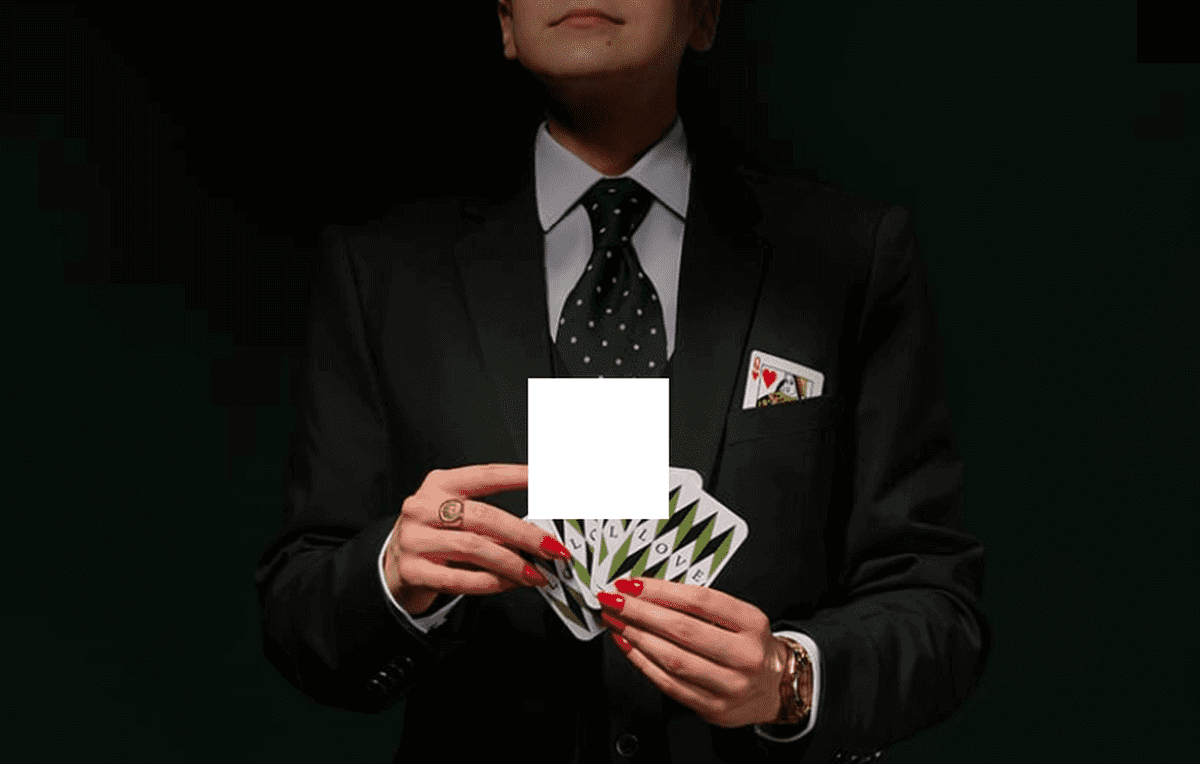 Image courtesy of English National Opera
Image courtesy of English National Opera
Another great option if you’re in the mood for comedy and romance over tragedy and heartbreak. Handel’s comic masterpiece is full of mischievous mayhem, disguises, and love triangles. The beautiful Partenope has four rival suitors vying for her attention - but one of them is actually Rosmira, disguised as a man in an attempt to win back her ex-lover, Arsace, who is in love with Partenope. Christopher Alden’s production is heavily inspired by Baroque aesthetics and Surrealist imagery, relocating this witty, dizzying story to the glittering, glamorous world of 1920s Paris. Musical highlights include ‘Furibondo spira il vento’, Emilio’s bombastic and boastful bravura aria, and the festive finale chorus, ‘Viva la regina’.
Turandot at the Royal Opera House
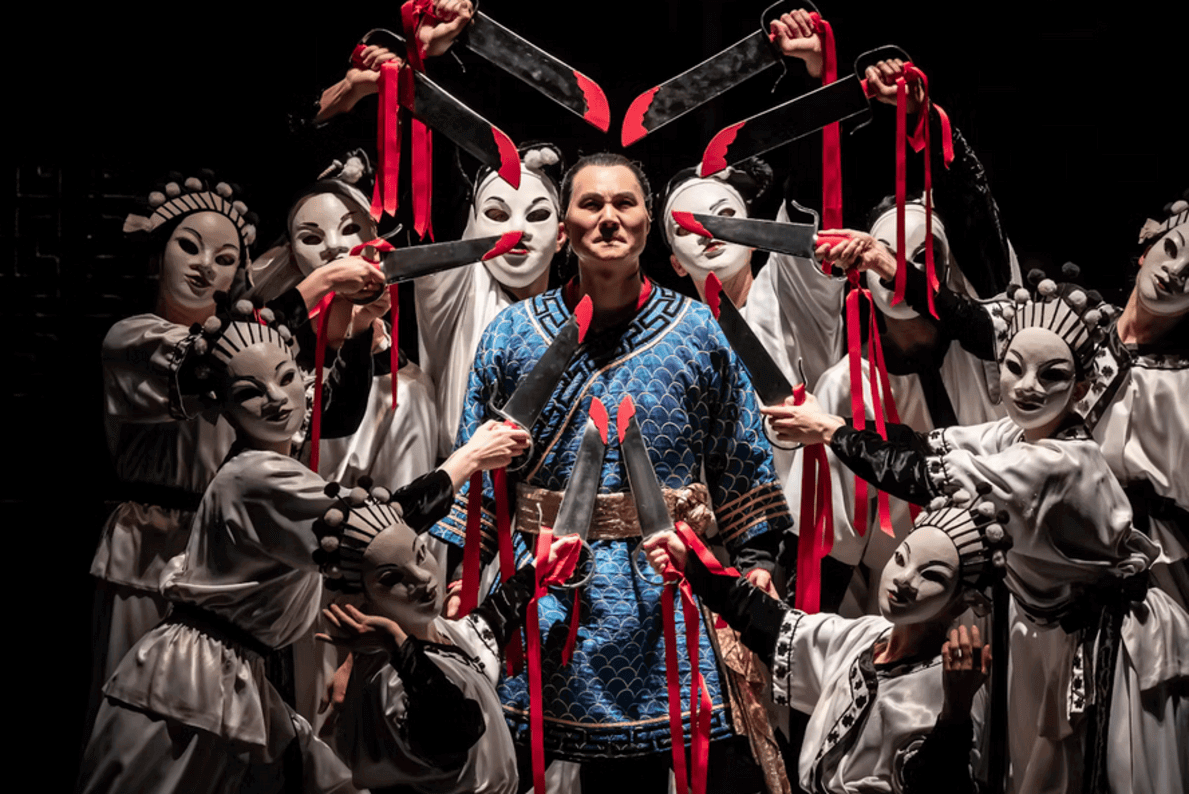 Image courtesy of the Royal Ballet & Opera
Image courtesy of the Royal Ballet & Opera
Puccini tragically left this opera unfinished, and Franco Alfano completed it after his untimely death. In contrast to the previous two European centric operas on this list, Turandot is set in mythical Peking. The haughty Princess Turandot swears she will marry no man unless he can correctly answer three riddles - and anyone who fails will lose his head, literally. But the proud princess is knocked off her pedestal when an unknown prince not only manages to solve the riddles, but also sets his own challenge to her. This charming story of love, redemption, and power draws on both Chinese and Italian theatrical traditions in a wonderful blending of cultures. Musical highlights include the heroic anthem 'Nessun dorma', sung by Calaf as he sets out to win over Turandot, and ‘In questa reggia’, the fiery monologue-aria sung by Turandot as she explains why she is so merciless towards men.
La Traviata at the Royal Opera House
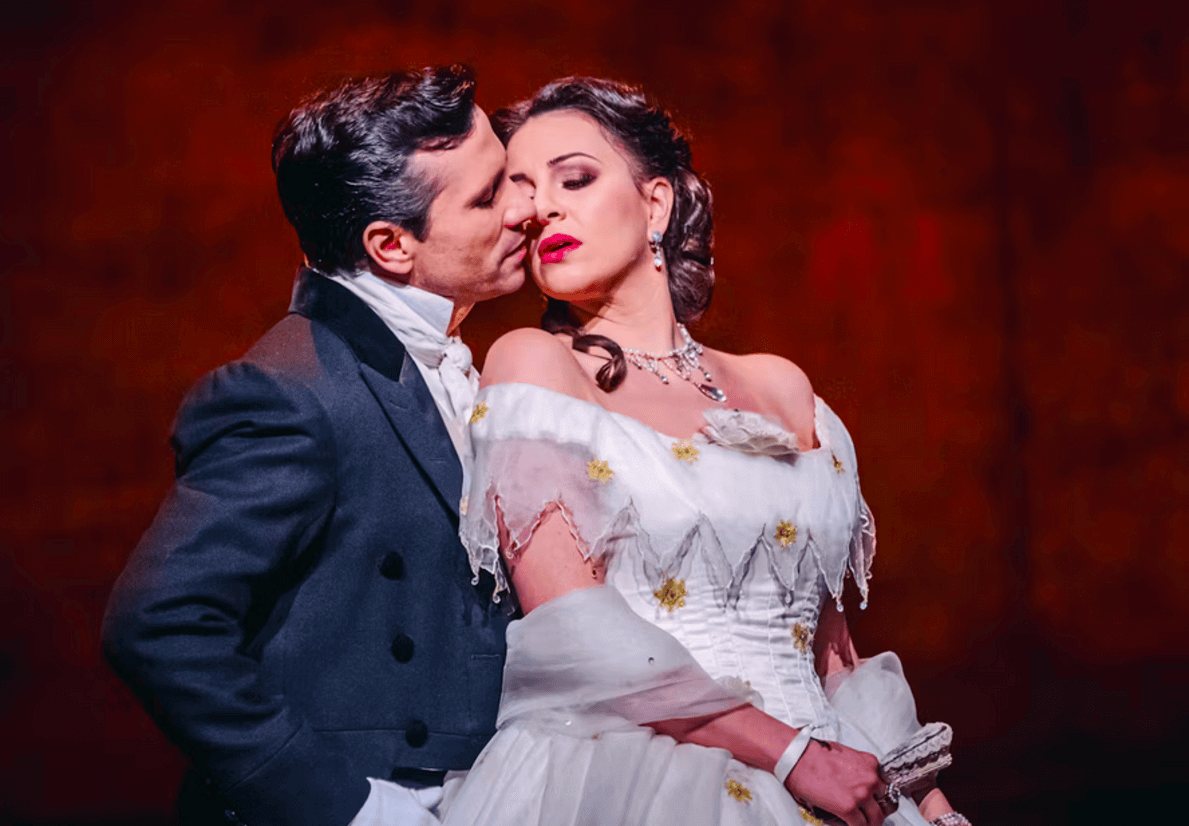 Image courtesy of the Royal Ballet & Opera
Image courtesy of the Royal Ballet & Opera
Possibly Verdi’s most famous opera, La Traviata (meaning 'she who has strayed from the path') is inspired by the life and death of the real-life Parisian courtesan Marie Duplessis, and is most celebrated for its complex, sympathetic but flawed heroine. One of the most iconic characters in opera, Violetta is a beautiful, much-desired Parisian courtesan, who falls in love with Alfredo Germont, but their match is forbidden by Alfredo’s father. A heartbroken Violetta flees to Paris with her former patron, Baron Douphol, and Alfredo follows, determined to win her back. Richard Eyre directs this stirring story of class divides and doomed love. Musical highlights include Violetta’s dazzling, high-flying cabaletta, ‘Sempre libera’, as she grapples with her feelings for Alfredo, and ‘Libiamo ne’ lieti calici’, the festive Drinking Song performed by a chorus, filled with charm and playful dialogue.
If you’re new to the world of opera, don’t be intimidated. You don’t need to be familiar with the technical elements or understand the language to appreciate these beautiful scores and powerful stories. Whether you’re in the mood for fantasy and magic, a historical epic, a heartbreaking tragedy, swoon-worthy romance, or rib-tickling comedy, there’s something for everyone.
Latest News
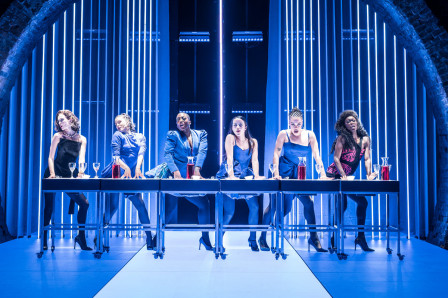
 AMERICAN PSYCHO announces extension to London run
3 February 2026 at 14:03
AMERICAN PSYCHO announces extension to London run
3 February 2026 at 14:03
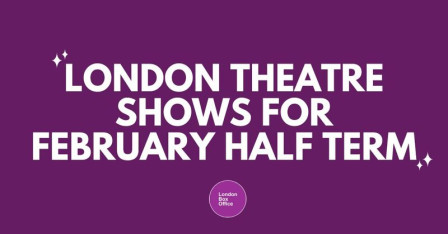
 London Theatre Shows To Watch This February Half-Term (The 2026 Edition)
3 February 2026 at 11:01
London Theatre Shows To Watch This February Half-Term (The 2026 Edition)
3 February 2026 at 11:01
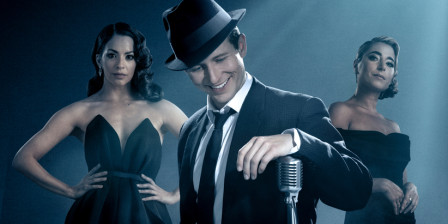
 Joel Harper Jackson to play Sinatra in SINATRA THE MUSICAL
3 February 2026 at 10:13
Joel Harper Jackson to play Sinatra in SINATRA THE MUSICAL
3 February 2026 at 10:13
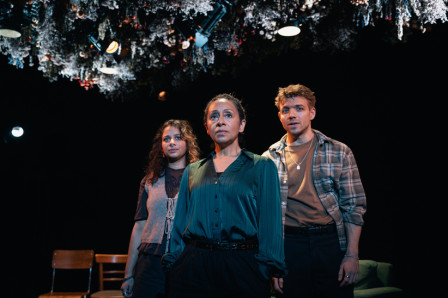
 Review: MAGGOTS at Bush Theatre
3 February 2026 at 09:40
Review: MAGGOTS at Bush Theatre
3 February 2026 at 09:40